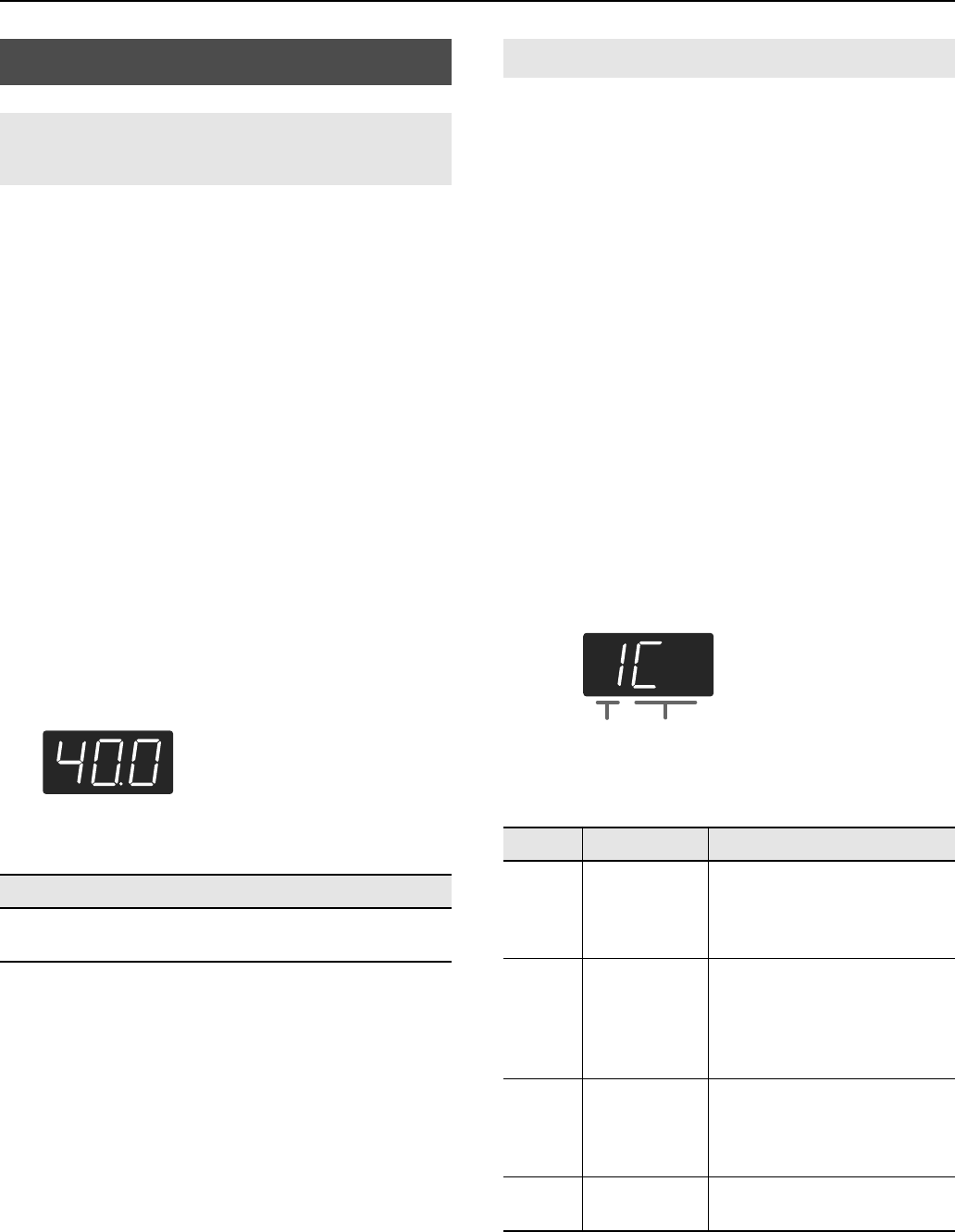
68
Various Settings
When playing ensemble with other instruments and in other
such instances, you can match the standard pitch to another
instrument.
The standard pitch generally refers to the pitch of the note
that’s played when you finger the middle A key. For a cleaner
ensemble sound while performing with one or more other
instruments, ensure that each instrument’s standard pitch is in
tune with that of the other instruments. This tuning of all the
instruments to a standard pitch is called “master tuning.”
1.
Hold down the [Brilliance] button and press
the [3D] button.
The display will indicate “Fnc” and you’ll be in Function
mode.
2.
Press the [Piano] button.
The display will indicate “tun” and then the value of the
setting will appear.
3.
Use the [-] [+] buttons to change the setting.
The last three digits are indicated in the display. “440.0
Hz” is indicated in the figure above.
When the instrument is shipped from the factory, this is
set to “40.0 (440.0 Hz).”
You can play classical music such as baroque pieces using
their original tuning.
Most modern songs are composed and played with the
assumption that equal temperament (the most common tuning
in use today) will be used, but when classical music was
composed, there were a wide variety of other tuning systems
in existence. Playing a composition with its original tuning lets
you enjoy the sonorities of the chords that the composer
originally intended.
1.
Hold down the [Brilliance] button and press
the [3D] button.
The display will indicate “Fnc” and you’ll be in Function
mode.
2.
Press the [E. Piano] button.
The display will indicate “tnP” and then the value of the
setting will appear.
3.
Use the [-] [+] buttons to change the setting.
You can choose from among the eight tunings described
below.
Tuning Settings
Matching the Pitch with Other
Instruments (Master Tuning)
Settings
15.3 Hz–40.0 Hz–66.2 Hz
(415.3 Hz–440.0 Hz–466.2 Hz)
Adjusting the Tuning (Temperament)
Setting
Temperament Qualities
1
Equal
In this tuning, each octave is
divided into twelve equal steps.
Every interval produces about the
same amount of slight dissonance.
2 Just (Major)
This tuning eliminates ambiguities
in the fifths and thirds. It is unsuited
to playing melodies and cannot be
transposed, but is capable of
beautiful sonorities.
3
Just (Minor)
The Just tunings differ from major
and minor keys. You can get the
same effect with the minor scale as
with the major scale.
4
Arabic
This tuning is suitable for the music
of Arabia.
TemperamentTonic
HP203_e.book 68 ページ 2007年4月12日 木曜日 午前10時5分


















